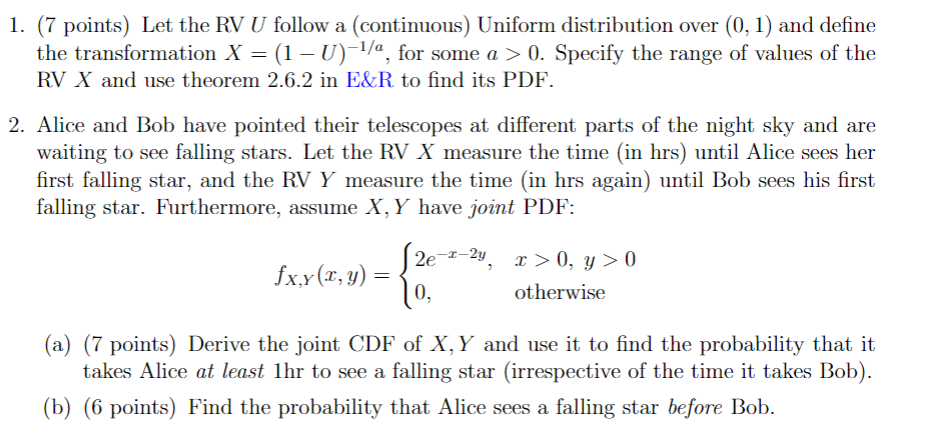Question: 1. (7 points) Let the RV U follow a (continuous) Uniform distribution over (0, 1) and define the transformation X = (1 -U) , for


1. (7 points) Let the RV U follow a (continuous) Uniform distribution over (0, 1) and define the transformation X = (1 -U) , for some a > 0. Specify the range of values of the RV X and use theorem 2.6.2 in E&R to find its PDF. 2. Alice and Bob have pointed their telescopes at different parts of the night sky and are waiting to see falling stars. Let the RV X measure the time (in hrs) until Alice sees her first falling star, and the RV Y measure the time (in hrs again) until Bob sees his first falling star. Furthermore, assume X, Y have joint PDF: 2ex-24, 1 > 0, y>0 fx,x (x, y) = 10. otherwise (a) (7 points) Derive the joint CDF of X, Y and use it to find the probability that it takes Alice at least 1hr to see a falling star (irrespective of the time it takes Bob). (b) (6 points) Find the probability that Alice sees a falling star before Bob.Theorem 2.6.2 Let X be an absolutely continuous random variable, with density function fx. Let Y = h(X), where h : R - R is a function that is different tiable and strictly increasing. Then Y is also absolutely continuous, and its density function fy is given by fr(y) = fx(h (y)) / [h'(h ())I, (2.6.1) where h' is the derivative of h, and where h- (y) is the unique number x such that h(x) = y
Step by Step Solution
There are 3 Steps involved in it

Get step-by-step solutions from verified subject matter experts


